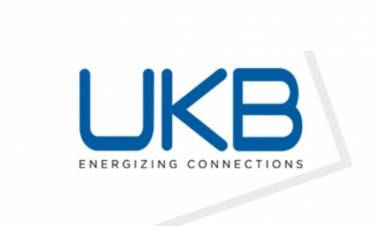Hindustan Zinc and US-based AEsir Technologies join hands for developing Zinc batteries

Hindustan Zinc and US-based AEsir Technologies join hands for developing Zinc batteries
- Hindustan Zinc has signed an MoU with AEsir Technologies to innovate the battery storage space, supporting the ongoing global energy transition
- Hindustan Zinc will be the preferred supplier of zinc for the US-based company
Chennai: As part of its efforts to bolster the ongoing global energy transition, Hindustan Zinc Limited (HZL), India's largest and the world's second-largest zinc producer, has signed an MoU (memorandum of understanding) with AEsir Technologies, Inc., a US-based company specializing in next-generation zinc battery technologies. Under this MoU Hindustan Zinc will be the preferred supplier of zinc, a key raw material for AEsir Technologies' next-generation batteries. Zinc-based batteries provide a compelling alternative to other modern energy storage solutions, delivering higher power at lower costs with minimal maintenance and longer lifespans of upto 20 years. This makes them ideal for large-scale energy storage in industrial settings.
The MoU is in line with Hindustan Zinc’s efforts towards exploring emerging applications of zinc in the clean energy transition. Zinc batteries are revolutionizing energy storage due to their corrosion resistance, cost-effectiveness, recyclability, stability, and environmental friendliness. They offer broader temperature tolerance, and reliable backup power for extended periods (3-72 hours) compared to other metals. They are built with non-flammable materials, are non-reactive to air and water, and produce no toxic fumes, ensuring greater safety. Additionally, Zinc-based batteries are recyclable, use non-hazardous raw materials, and have a greenhouse gas (GHG) footprint six times lower than other technologies.
AESir’s Nickel Zinc (NiZn) batteries have proven dependable and successful in the high-end defence sector (including aerospace and marine), renewable energy and critical infrastructure for data centres and 5G telecom etc. Decades of continuous improvement at live locations have enabled AEsir’s NiZn batteries to eliminate historical issues like electrolyte dry-out, metal branching (dendrite growth), and zinc migration.
Speaking on the occasion, Arun Misra, CEO of Hindustan Zinc Limited, said, “Zinc is integral to a low-carbon future. At Hindustan Zinc, our focus is to produce metals sustainably for applications that power the ongoing global energy transition. This partnership with AEsir Technologies is yet another step in our ongoing developmental work in the emerging clean technology space. By providing high-quality zinc for cutting-edge energy storage, we are opening sophisticated new avenues for environmentally friendly solutions for a greener tomorrow.”
Adding his views, Randy Moore, CEO & Co-Founder of AEsir Technologies, said, “Energy storage is at the forefront of every major innovation in the energy transition space. Zinc batteries are the best story around energy storage. We are achieving great innovation in this space and this collaboration with Hindustan Zinc provides us with critical raw material for the development of next-gen Nickel Zinc batteries. We are pleased to partner with Hindustan Zinc as we are also focussed on the sustainability of our value chain, and they are global leaders in this domain.”
The world is witnessing a rapid evolution in the battery industry, driven by an essential need for sustainable energy storage solutions. The global energy storage market is on an upward trajectory, with projections of an annual growth of 21%, reaching 442 GWh by 2030 according to a recent Bloomberg NEF report.
This groundbreaking collaboration demonstrates Hindustan Zinc’s crucial role in catering to the increasing demand for alternative energy solutions by being an active contributor of critical raw materials for the development of emerging clean technologies. As the world pivots towards a greener future, this collaboration between Hindustan Zinc and AEsir Technologies portends far-reaching implications for innovative energy storage solutions that promise a safer, cleaner, and more sustainable tomorrow.




















